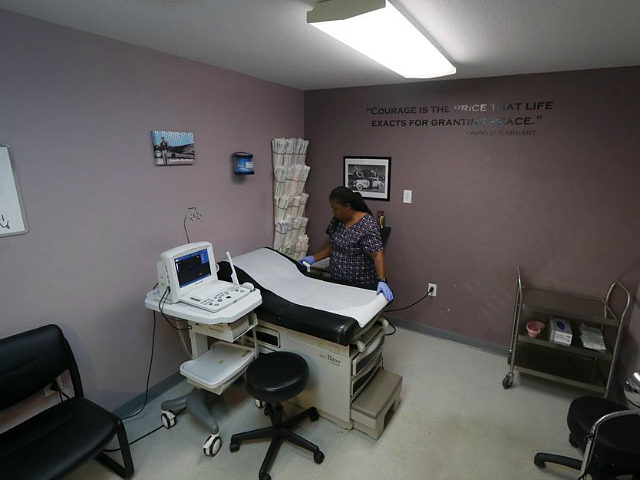Friday’s decision by the U.S. Supreme Court to overturn Roe v. Wade will make abortions illegal in Texas in 30 days. The Texas Legislature passed a “trigger law” in 2021 that makes performing abortions in Texas a felony 30 days after the Supreme Court overrules Roe v. Wade.
“The U.S. Supreme Court correctly overturned Roe v. Wade and reinstated the right of states to protect innocent, unborn children,” Texas Governor Greg Abbott said in a written statement following the SCOTUS decision on Dobbs v. Jackson Women’s Health Organization. “Texas is a pro-life state, and we have taken significant action to protect the sanctity of life.”
One of those steps was the creation of a “trigger law,” House Bill 1280, that makes performing an abortion a felony beginning 30 days after the court’s decision. State Representative Giovanni Capriglione authored the bill and Governor Abbott signed it into law in June 2021.
The bill makes it a crime to perform, induce, or attempt abortion. The law provides exceptions for a life-threatening condition of the mother that could lead to her death or serious bodily injury. A violation of the law is a felony of the second degree. The death of the unborn during the abortion would increase the offense to a felony of the first degree. The person performing the abortion could also be subject to a civil penalty of up to $100,000 for each violation.
The law does not impose any penalty or fine on the pregnant female, the law states. Rep. Capriglione told the Fort Worth Star-Telegram the penalties also do not apply to a pregnant female who performs a self-induced abortion.
The Texas Tribune wrote that Friday’s Supreme Court decision will “radically change the reproductive health care landscape in Texas and the entire nation, where more than half of all states are expected to essentially ban abortion in the coming months.”
Guttmacher Institute, a reproductive rights research group, reports that 26 states are “certain or likely to ban abortions without Roe.” The group lists the following states they say are “certain to ban abortions:”
- Alabama—Pre-Roe ban, Near-total ban, State constitution bars protection
- Arizona—Pre-Roe ban
- Arkansas—Pre-Roe ban, Trigger ban, Near-total ban
- Georgia—Six-week ban
- Idaho—Trigger ban, Six-week ban
- Iowa—Six-week ban
- Kentucky—Trigger ban, Six-week ban
- Louisiana—Trigger ban, Near-total ban, Six-week ban, State constitution bars protection
- Michigan—Pre-Roe ban
- Mississippi—Pre-Roe ban, Trigger ban, Six-week ban
- Missouri—Trigger ban, Eight-week ban
- North Dakota—Trigger ban, Six-week ban
- Ohio—Six-week ban
- Oklahoma—Pre-Roe ban, Trigger ban (effective November 1, 2021), Near-total ban, Six-week ban
- South Carolina—Six-week ban
- South Dakota—Trigger ban
- Tennessee—Trigger ban, Six-week ban, State constitution bars protection
- Texas—Pre-Roe ban, Trigger ban, Six-week ban
- Utah—Trigger ban, Near-total ban
- West Virginia—Pre-Roe ban, State constitution bars protection
- Wisconsin—Pre-Roe ban
- . Wyoming—Trigger ban
Additionally, they say Florida, Indiana, Montana, and Nebraska are “likely to ban abortions.”
“Texas has also prioritized supporting women’s healthcare and expectant mothers in need to give them the necessary resources so that they can choose life for their child,” Gov. Abbott stated. “I signed laws that extended Medicaid health care coverage to six months post-partum, appropriated $345 million for women’s health programs, and invested more than $100 million toward our Alternatives to Abortion program. This critical program provides counseling, mentoring, care coordination, and material assistance, such as car seats, diapers, and housing to mothers in need.”
“Texas will always fight for the innocent unborn, and I will continue working with the Texas legislature and all Texans to save every child from the ravages of abortion and help our expectant mothers in need,” the Texas governor concluded.

COMMENTS
Please let us know if you're having issues with commenting.